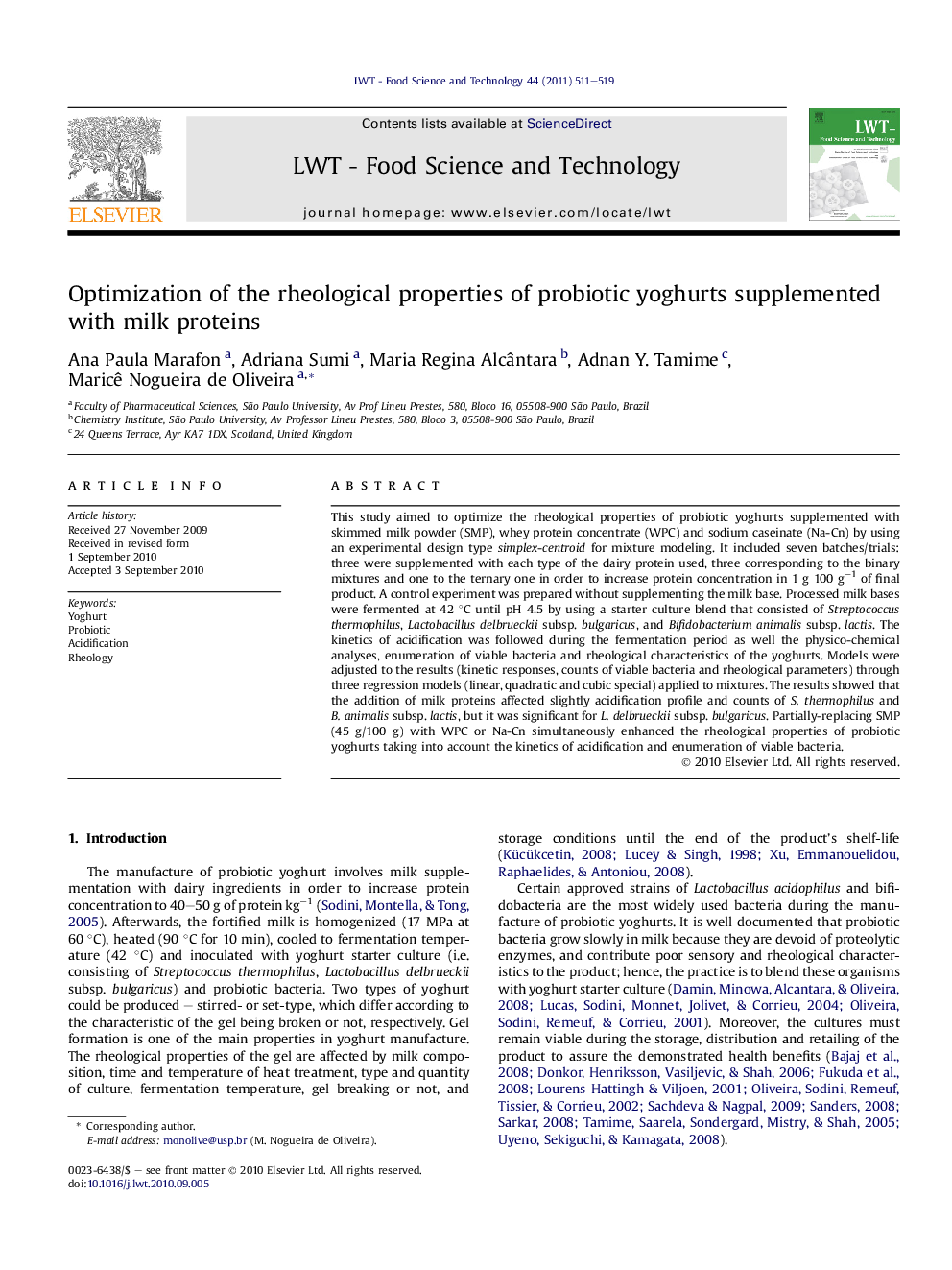| Article ID | Journal | Published Year | Pages | File Type |
|---|---|---|---|---|
| 4564050 | LWT - Food Science and Technology | 2011 | 9 Pages |
This study aimed to optimize the rheological properties of probiotic yoghurts supplemented with skimmed milk powder (SMP), whey protein concentrate (WPC) and sodium caseinate (Na-Cn) by using an experimental design type simplex-centroid for mixture modeling. It included seven batches/trials: three were supplemented with each type of the dairy protein used, three corresponding to the binary mixtures and one to the ternary one in order to increase protein concentration in 1 g 100 g−1 of final product. A control experiment was prepared without supplementing the milk base. Processed milk bases were fermented at 42 °C until pH 4.5 by using a starter culture blend that consisted of Streptococcus thermophilus, Lactobacillus delbrueckii subsp. bulgaricus, and Bifidobacterium animalis subsp. lactis. The kinetics of acidification was followed during the fermentation period as well the physico-chemical analyses, enumeration of viable bacteria and rheological characteristics of the yoghurts. Models were adjusted to the results (kinetic responses, counts of viable bacteria and rheological parameters) through three regression models (linear, quadratic and cubic special) applied to mixtures. The results showed that the addition of milk proteins affected slightly acidification profile and counts of S. thermophilus and B. animalis subsp. lactis, but it was significant for L. delbrueckii subsp. bulgaricus. Partially-replacing SMP (45 g/100 g) with WPC or Na-Cn simultaneously enhanced the rheological properties of probiotic yoghurts taking into account the kinetics of acidification and enumeration of viable bacteria.
